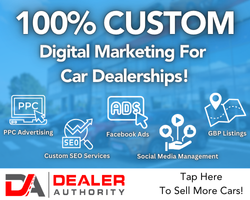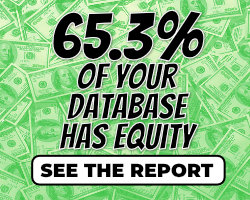Researchers at the University of Iowa recently found that people who have only a little information about a product are happier with that product than people who have more information. Does this go hand in hand with the customer that pays the most is usually your happiest customer?
"We found that once people commit to buying or consuming something, there’s a kind of wishful thinking that happens and they want to like what they’ve bought," said Dhananjay Nayakankuppam, marketing professor at UI".
eMarketer analysts Lisa Phillips has this to say about the study:
"So if 70% of US automotive shoppers research their purchases online before buying, does that mean 100% of them will be really ticked off within three months of the purchase? Or maybe 50% of them will be ok with what they bought, but 1% will be swayed by the US Ford TV commercials that they really wanted an Edge, not a Nissan Murano? "Realistically, people research products to either make themselves comfortable making a choice or to rationalize their primary choice. Either way they can defend it to their partners, parents, friends and siblings."
Another eMarketer analysts, Ben Macklin said:
"There is only a certain amount of information and choices a human can absorb. The choices now available to consumers in terms of broadband, voice, TV and mobile services—and their possible bundles—from a host of different providers is completely overwhelming for some."
I think this really depends on the individual. We know that many of our online car shoppers are definitely considering other makes and models. It’s not like the days where you had fewer choices.
Case in point: Our lease is up on my wife’s Mercedes SUV (no remarks please, I got one hell of a lease deal on it), so it’s time for another vehicle and she of course wants another SUV. So here I am in shopping mode. I know what options she likes and what we need to have. What do we get? What are my choices? The truth is, the options are totally overwhelming to some degree. Another Mercedes ML, VW Touareg, Mazda CX-9, BMW X5, Subaru Tribeca, Acura MDX and even the Saturn Outlook is on the list. That’s a lot of choices!
Now of course the sales person in me says, "come on Jeff, you have SUV’s from each end of the spectrum here. You need figure out which one you like the most!" But you know what, I initially thought I would consider driving anyone of these vehicles as long as the lease payment made sense and the vehicle provided my wife and I with the features we need and want.
So lets say I visit the Subaru dealer and the sales person is useless, doesn’t know the product and is sort of on the pushy side. Guess what? I’m no longer interested in the Subaru. I have so many other choices that it’s highly unlikely that I even visit another Subaru dealer this time around.
I then visit the Saturn dealer. The sales person is laid back (maybe too laid back) but easy to work with. I just can’t bring myself to buy a Saturn.
The BMW X5 lease payment comes out to be too high as does the Touareg. Both were impressive but not enough for me to swallow the payment.
So far I have shopped 4 different vehicles at 4 different dealers. By now I’m starting to get a little worn out. I hate to shop..but I love to BUY! That is usually the truth for all consumers. Shopping is a pain, buying gets you gratification.
I now have it narrowed down to another Benz ML, Mazda CX-9 or the Acura MDX. Still 3 choices to consider.
My point here is, many of your customers are on the same situation and all the choices quickly become overwhelming. This is where CUSTOMER SERVICE and PRODUCT KNOWLEDGE plays a key role in obtaining a sale.
Coming back to the study: "people who have only a little information about a product are happier with that product than people who have more information" I do agree with this BUT this is NOT today’s average consumer. We are in the age of information and at the click of a button. People want information even if they are aware that it could be totally overwhelming. Recognize this and use this to your advantage!










